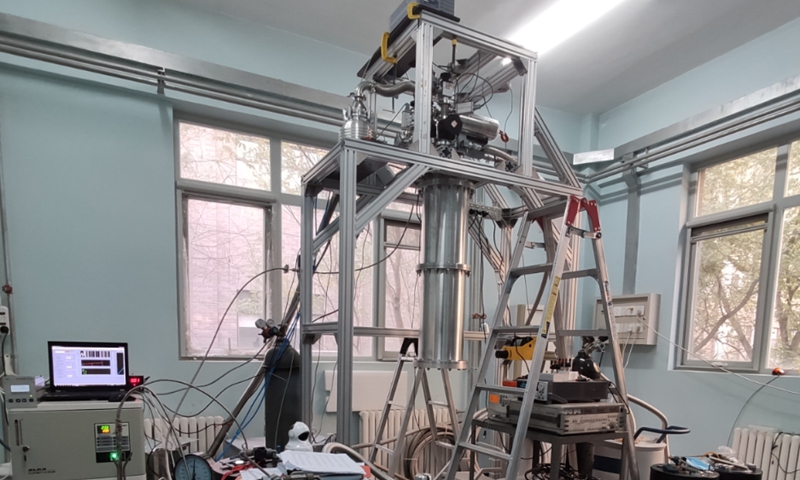China achieves breakthroughs in self-developed no liquid helium dilution refrigerators to solve bottleneck problem in quantum computing

Photo: stdaily.com
China achieves breakthroughs in self-developed no liquid helium dilution refrigerator, targeting the bottleneck problem in quantum computing, as the technology will guard China’s study and development of quantum computing with a steady cryogenic guarantee, according to an announcement from the Institute of Physics, Chinese Academy of Sciences in June.
The complete self-developed prototype of no liquid helium dilution refrigerator by the Institute of Physics has achieved a long-term stable and continuous operation of 10.9 mK (-273.14 degrees) on June 24, marking a significant breakthrough in China’s development of high-end cryogenic machines.
China currently completely relies on imports of helium dilution refrigerators, but the country has identified developing a domestic production capacity as a key priority, science media stdaily.com reported on Tuesday, citing Ji Zhongqing, a researcher from the Institute of Physics.
Helium dilution refrigerators are an irreplaceable element for the research and development of quantum computing, providing an extreme cryogenic environment for quantum computers to function normally, according to stdaily.com.
No liquid helium dilution refrigerators are able to achieve an extreme temperature of just 0.01 degree above the absolute zero without the aid of liquid helium, which are also the dilution refrigerators with the lowest temperature that are commercially available on the market, according to media reports.
The newly developed prototype of no liquid helium dilution refrigerator will solve the bottleneck problem in quantum computing, said Ji, adding that mastering the core technology of dilution refrigeration indicates that China has the ability to provide extremely low temperature conditions for cutting-edge research including quantum computing.
Global Times
